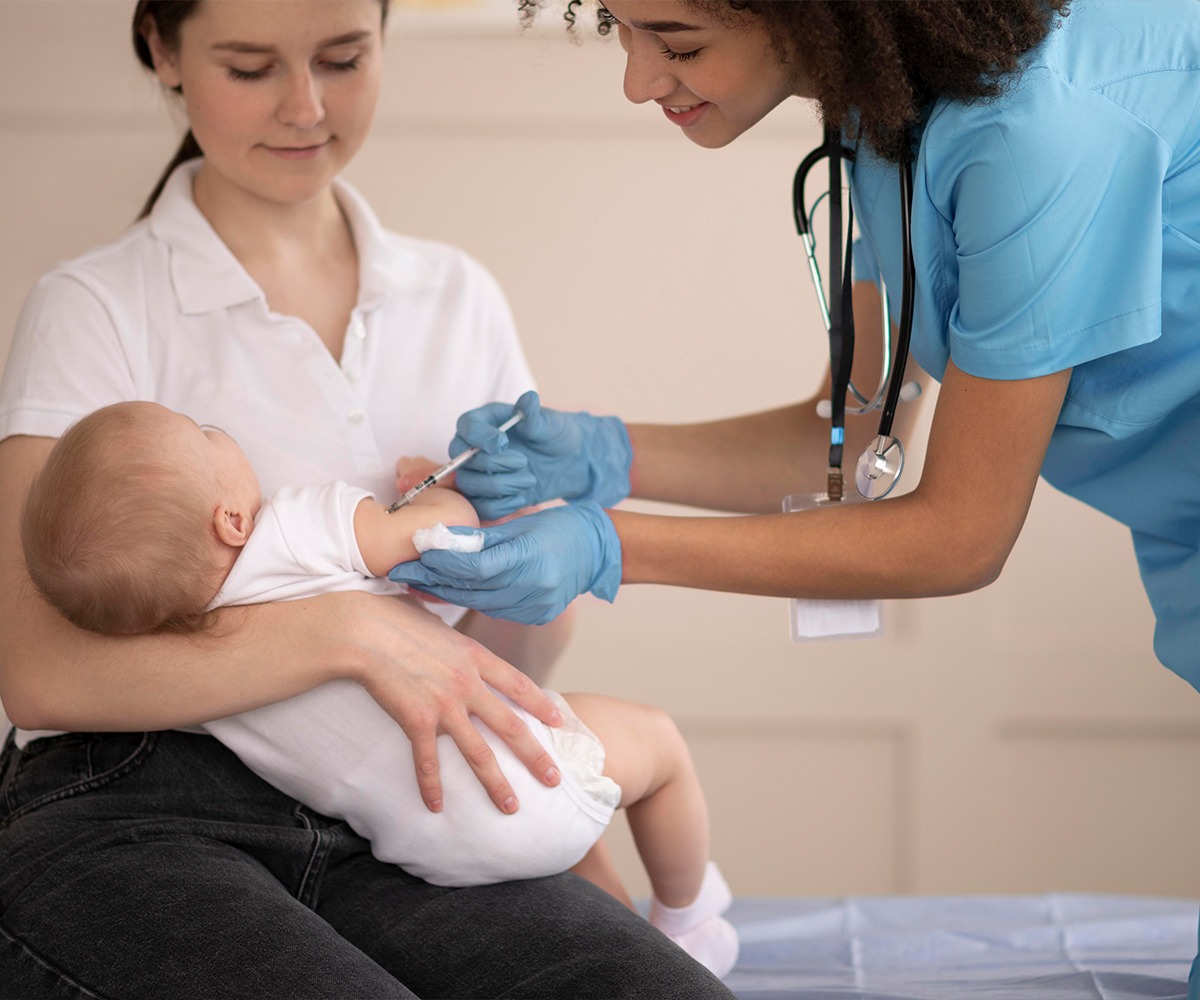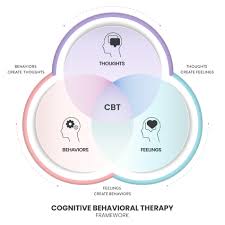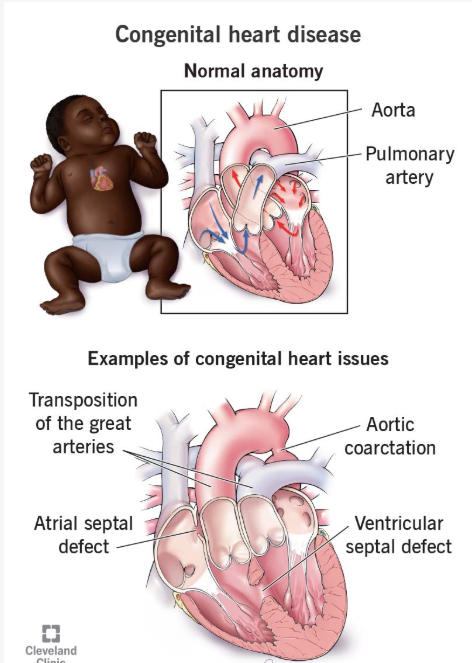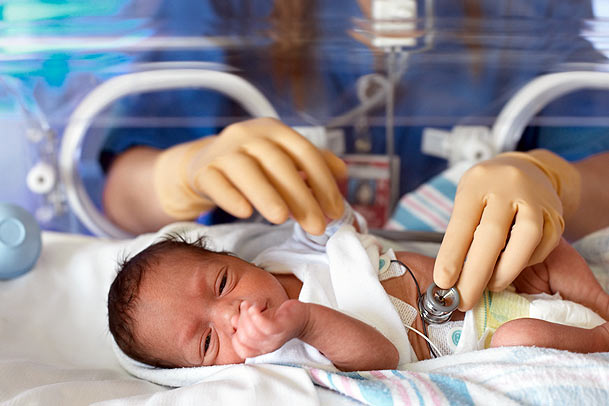What Are Vaccinations & Preventive Care?
Vaccinations are essential for protecting children from serious and potentially life-threatening diseases. Preventive care involves regular health checkups, screening, and timely immunizations that help ensure a child's healthy growth and development. These practices not only prevent infections but also help in early detection of health concerns, ensuring prompt treatment.
Importance of Vaccinations & Preventive Care
Vaccination is one of the most effective ways to protect children from infectious diseases that can lead to long-term health problems, hospitalization, or death. Preventive care measures, such as health screenings and well-child visits, ensure early detection of conditions that might not be obvious but could have serious consequences if left untreated.
Common Childhood Vaccines & Their Importance
Several vaccines are recommended for children to prevent a range of diseases. Some of the most important vaccines include:
- BCG (Bacillus Calmette-Guérin): Protects against tuberculosis.
- DTP (Diphtheria, Tetanus, Pertussis): Protects against diphtheria, tetanus, and whooping cough.
- Hepatitis B: Protects against hepatitis B virus, which affects the liver.
- Polio (IPV): Prevents poliomyelitis (polio), a virus that causes paralysis.
- MMR (Measles, Mumps, Rubella): Protects against three diseases—measles, mumps, and rubella.
- Rotavirus: Prevents severe diarrheal disease caused by rotavirus.
- Chickenpox (Varicella): Prevents chickenpox, which can lead to complications in children.
- Hepatitis A: Prevents hepatitis A virus infection, which affects the liver.
When Should Vaccines Be Given?
Vaccines are given at specific ages to ensure children receive maximum protection at the right time. The typical vaccination schedule includes:
- Birth: BCG, Hepatitis B
- 2 months: DTP, Polio, Hepatitis B, Hib, Rotavirus
- 4 months: DTP, Polio, Hib, Rotavirus
- 6 months: DTP, Polio, Hepatitis B, Rotavirus
- 12 months: MMR, Chickenpox, Hepatitis A
- 15-18 months: DTP, Polio, Hib
- 4-6 years: DTP, Polio, MMR, Chickenpox
The schedule may vary depending on the region, healthcare provider, and specific health guidelines.
Preventive Care Measures for Children
In addition to vaccinations, preventive care includes regular health check-ups and screenings to monitor a child’s growth, development, and overall health. Key aspects of preventive care include:
- Regular Checkups: Annual visits to a pediatrician to monitor a child’s growth, development, and vaccination status.
- Growth Monitoring: Tracking weight, height, and developmental milestones to ensure proper growth.
- Vision & Hearing Screening: Early detection of vision or hearing problems that can affect learning and development.
- Dental Care: Starting dental checkups at an early age to prevent tooth decay and other oral health issues.
- Nutritional Counseling: Educating parents about healthy eating habits to promote optimal growth and immunity.
Benefits of Vaccinations & Preventive Care
Vaccinations and preventive care offer numerous benefits, including:
- Protection Against Infectious Diseases: Prevents serious diseases such as measles, polio, and hepatitis.
- Reduced Risk of Complications: Prevents severe complications that can arise from illnesses like pneumonia or encephalitis.
- Promotes Healthy Growth and Development: Ensures that children reach their developmental milestones and maintain good health.
- Community Immunity: Protects not only the individual child but also helps to prevent the spread of diseases within the community.
- Cost-Effective: Preventing diseases through vaccination is more affordable than treating a serious illness.
Symptoms Indicating the Need for Medical Attention
Although vaccinations and preventive care can prevent many health issues, some symptoms might indicate a health concern in children that requires medical attention:
- Fever or Irritability: Could be a sign of infection or post-vaccination side effects.
- Persistent Cough or Difficulty Breathing: Symptoms of respiratory infections that require immediate attention.
- Diarrhea or Vomiting: Dehydration can become a serious concern and needs timely intervention.
- Unusual Rash or Skin Changes: Could indicate an allergic reaction or infection.
- Delayed Developmental Milestones: Difficulty in reaching certain physical or cognitive milestones may require evaluation.
- Lethargy or Weakness: A lack of energy or excessive tiredness may indicate an underlying health issue.
Cost of Vaccinations & Preventive Care in India
The cost of vaccinations and preventive care in India is generally affordable compared to Western countries. The cost of individual vaccines typically ranges from INR 500 to INR 3,000 (approximately USD 7 to USD 40), depending on the type of vaccine and healthcare facility. Preventive care services, such as routine health checkups, may cost between INR 1,000 to INR 5,000 (approximately USD 12 to USD 60).
Factors that affect cost include:
- Type of Vaccine: Some vaccines, like the MMR or HPV vaccine, may be more expensive.
- Healthcare Facility: Private hospitals or clinics may charge higher fees compared to government hospitals.
- Geographical Location: The cost of healthcare services may vary by city or region.
- Additional Services: Fees for checkups, screenings, or specialized tests may increase the overall cost.
India’s medical services are known for offering excellent quality at a fraction of the price found in other countries, making it a cost-effective option for parents seeking vaccinations and preventive care.
Frequently Asked Questions (FAQs)
- What is the best time to start vaccinating my child?
Vaccination should begin shortly after birth, as early immunization is crucial to protect against preventable diseases.
- Are vaccines safe for my child?
Yes, vaccines are extensively tested for safety and efficacy. They are an essential part of protecting your child's health.
- Can my child receive multiple vaccines at the same time?
Yes, vaccines can be administered together without any harm. It’s important to follow the recommended vaccination schedule.
- What should I do if my child has a reaction to a vaccine?
Mild reactions like fever or swelling are common. If your child experiences severe reactions, consult your pediatrician immediately.
- Are vaccines free in India?
Some vaccines are available for free through government health programs, while others may be available at private healthcare facilities for a fee.
- Can I delay vaccinations for my child?
It's important to follow the recommended vaccination schedule to ensure your child is fully protected against diseases.
- How can I track my child's vaccination records?
Keep a record of your child's vaccinations, which can be obtained from your healthcare provider. Many apps also track immunization schedules.
- Are there any side effects of vaccinations?
Most vaccines have mild side effects, such as swelling or a low-grade fever. Serious side effects are rare.
- How often should my child have check-ups?
Routine checkups should be scheduled annually or as recommended by your pediatrician, based on your child’s health needs.
- Can preventive care help in early detection of diseases?
Yes, regular check-ups and screenings help identify health issues early, making treatment more effective.







 Get an Opinion
Get an Opinion
